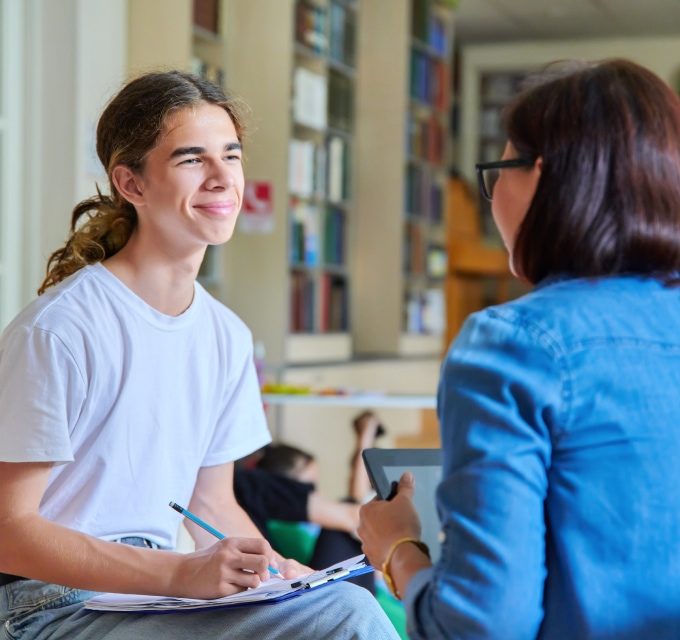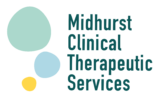First and foremost
A social enterprise
Within the United Kingdom there is a devastating lack of effective, specialist services to meet the needs of children, young people and families impacted by trauma, abuse and neglect.
Our mission at MCTS is to bring together years of expertise and experience in the field to deliver specialist assessment services in an ethical and trauma-informed way.
We are a social enterprise – we believe in reinvesting to improve services for children, young people, and families who have experienced trauma and adversity, in an innovative and socially conscious way.


A path to success
Meet the team
In 1991 Richard began his work with children, young people, and adults who have experienced significant adversity and complex trauma. He has had the privilege to support over a thousand adults and children during his career who have successfully attained their aims in psychotherapy around their experiences of CPTSD.
Richard has kept at the forefront of advances and was an early adopter of Eye Movement Desensitisation & Reprocessing (EMDR), utilising this since 2007 in appropriate contexts. He also has over twenty years of experience supporting those diagnosed with CPTSD, Dissociative Disorders (DID, DDNOS etc.) and has provided consultancy to medical teams, psychologists, and psychiatrists. He frequently trains qualified mental health professionals in developing skills around assessment and interventions as a faculty member of ISSTD and ATI.
Richard’s experience in assessment for family court focuses on child maltreatment and neglect. To support this area, in 2011 he undertook training with Bond Salon to ensure he could advance his learning in the area (Cross-examination Day, Excellence in Report writing, Courtroom skills).
His aims through MCTS are to ensure the most responsive and effective supports are available for children and young people. From the organisational (becoming trauma-informed) to the professionals’ groups (consultation, training, supervision), extending to families and the provision of psychotherapeutic support to the children and young people themselves.
 Key Achievements
Key Achievements
Key Achievements
Key Achievements
-
2020
Developed and implemented the Attachment and Trauma-Informed Care model ‘ATIC’ -
2008
In collaboration with Dr Sandra Bloom, piloted and developed The Sanctuary Model (Trauma-informed care) in the UK (after spending time in the USA) -
2003
Managed a new Therapeutic Community for 40 life-sentenced Prisoners -
2001
The developed the Advanced Equip program for Youth Units (Severe Conduct Disorder) in New Zealand and acted as a consultant to Ti Piriti Special treatment Unit to develop new programs -
1999
The piloting of the first Adapted SOTP for young people -
1997
The development and piloting of the first therapeutic groupwork program for young people convicted of sexual offences
Hannah has been working in a wide range of mental health, social care and education settings since 2008.
Since qualifying as a Clinical Psychologist in 2018, she has specialised in working with services for young people and families who have experienced adversity and complex trauma. She is passionate about attachment and trauma-informed service design and leadership and draws on community psychology ideas and principles. Hannah has had first hand experience of using child and adult mental health services and is proud to utilise her lived experience alongside her professional training, in service of those who are neglected in the current systems.
 Key Achievements
Key Achievements
Key Achievements
Key Achievements
-
2022
Moved into a leadership role focusing on developing services to improve outcomes for children and families. -
2021
Developed an 18-session Therapeutic Care Programme for foster carers and residential staff which is being implemented nationally, with an accompanying Reflective Practice model. -
2020
Supported the evolution and implementation of the Attachment and Trauma-Informed Care model ‘ATIC’ within fostering and residential services. -
2019
Founding co-director of a Community Interest Company which drew on community psychology approaches to improve the health and wellbeing of the local community. Co-creating opportunities for collaboration, inclusion and belonging and increasing awareness of the social determinants of mental health difficulties and poor wellbeing, including poverty, oppression, and powerlessness. -
2018
Involved in the pilot Integrative Therapeutic Assessment and Support Clinic within Complex CAMHS, supporting young people and families who have multiple adverse childhood experiences and complex developmental trauma -
2017
Research into a systemic, attachment-focused intervention for families of children with a diagnosis of autism. -
2010
Five years working within the charitable sector, supporting families and children with additional needs.
Kelly has worked within the expert witness industry since 2011.
She has a wealth of knowledge and experience working alongside medical experts and lawyers, which she has brought with her to MCTS since joining in June 2024. She has extensive experience in managing day-to-day office operations, overseeing workflow of documentation and delivering exceptional administrative support. Kelly has led administrative teams within her career and works hard to foster a professional and respectful workplace, that is designed to empower colleagues, helping to achieve company level deadlines and goals.
Peonelyn completed her degree in psychology in 2020 and has since embarked on her career working in both social and mental health care settings.
From her experience, Peonelyn values working closely with and supporting young people who have experienced trauma and adverse experiences. She is passionate about being a part of their trajectory forward and working with likeminded clinicians at MCTS to deliver this.
 Key Achievements
Key Achievements
Key Achievements
Key Achievements
-
2024
Began delivering additional 1:1 therapeutic support to young adolescents. Involved in facilitating a DBT based Emotion Regulation Skills Group and conducting research into team wellbeing. -
2023
Began working as an Assistant Psychological Practitioner supporting residential therapeutic homes. -
2022
Progressed into a Senior Therapeutic Care Worker role supporting both the team and young people in a residential setting. -
2021
Supported elderly residents with dementia and nursing care. Began working with young adolescents with significant trauma and adverse experiences. -
2020
Involved in research for the Brain Tumour Charity on Nurse and Allied Health Professional conferences.
Katie has been working within a variety of health, care and social care settings since 2009, later specialising predominantly with children and young people from care experienced backgrounds and supporting the wider networks.
Since qualifying as an Art Psychotherapist in 2016, Katie has worked within social emotion and mental health settings, step down hospital settings and supporting young people with many mental health diagnoses, developmental trauma and neurodevelopmental conditions. In utilising creative methods, this has supported many young people in exploring their difficulties in a way that can allow them to
express themselves even when words do not.
Katie has led Clinical teams within her previous role and utilises her leadership knowledge and experience within her role at MCTS.
 Key Achievements
Key Achievements
Key Achievements
Key Achievements
-
2023
Starting a small Jewellery business to support creativity and wellbeing alongside role as an Art Psychotherapist. -
2022
Becoming a Clinical and Wellbeing Lead; leading Clinical teams in supporting Children and Young people within SEMH and residential childcare settings. -
2021
Completing training in Dialectical Behavioural Therapy, Level 3. -
2020
Completing Supervision Training for Arts Therapists and clinically supervising Arts Therapists. -
2017
Being involved in an Art Therapy Large Group at Goldsmiths University. -
2016
Completed an MA in Art Psychotherapy. -
2014
Coordinating a collaborative Art Exhibition with a charity and Royal Academy of Arts by patients, carers and staff including those in attendance of Art Psychotherapy. -
2014
Providing Art Therapy Workshops in Palestine.
Katie is a Clinical Psychologist who has been working in a variety of mental health settings with young people since 2014.
Her main interests lie in working systemically to support young people with complex trauma and attachment presentations and she has worked in community, inpatient, school and residential settings. Katie draws on a wide range of approaches in her work, including CBT, Dialectical Behavioural Therapy (DBT) and Compassion Focused Therapy (CFT) and enjoys working creatively and flexibly to best meet the young person’s needs. Katie also values working with the young person’s family and network to build a shared understanding, ensure they are being supported in the best possible way, and that change happens beyond the individual therapy space.
 Key Achievements
Key Achievements
Key Achievements
Key Achievements
-
2024
Qualified as a Clinical Psychologist and began her role in MCTS. -
2024
Completed doctorate thesis exploring the impact of pupil-teacher attachment relationships for pupils excluded from mainstream school. -
2021
Began the Clinical Psychology Doctorate at the University of Surrey. -
2019
Involved in the development of DBT and CFT programmes in an adolescent secure mental health setting. -
2017
Spent time working in India on community empowerment projects linking vulnerable women and families with opportunities for training and employment and developing women’s peer support groups. -
2015
Began working as an Assistant Psychologist in an innovative therapeutic school for young people with complex attachment needs. -
2012
Involved in research considering the role of paternal mental health in the post-natal period on early child development.
Heather has over 20 years of customer service, administrative, technical writing, and creative experience.
Her qualifications in Art and Design, as well as working in different business sectors, has allowed her to develop a broad range of skills, some of which include writing medical equipment manuals, designing craft products, being a craft demonstrator on live TV, as well as running her own craft workshops. Heather is passionate about her creative life and enriching the lives of others. She continually strives to develop her creative and business skills by taking part in regular workshops, classes, and self-study. Personal development is important to Heather and she sees every new challenge as an opportunity for growth.
Kate joined MCTS in May 2025, with over 15 years’ experience working in various customer service and administrative roles, including retail, HR and the charity sector. Kate has a Diploma in Business Administration following an apprenticeship and is an advocate for young people being given the opportunity to gain skills and qualifications in non-academic settings.
Kate loves working in people-focused roles and is passionate about helping others to discover and realise their full potential. She has worked with people from all walks of life and enjoys getting to know them and learning about their life experiences.
Animals have had a very therapeutic and positive influence in Kate’s life and having previously volunteered and worked in an animal rescue centre she takes any opportunity to spend time with them!
Kate is kind, resilient and always looking to grow and develop both personally and professionally.
Mia is a dedicated and experienced administrator with a strong background in recruitment, human resources and special project co-ordination. She has excellent organisational skills and a proactive approach to problem solving which is beneficial in streamlining hiring processes and supporting onboarding.
Mia has a Level 3 diploma in Health and Social Care, a business studies qualification, and a genuine passion for helping people. She loves working in a people-centred environment and with her previous customer service experience; she is a compassionate and reliable point of contact. Mia is always up for a challenge and continuously looking for new ways to develop herself both professionally and personally.
Alastair is our Clinical Case Lead and Psychotherapist who joined the MCTS team in October 2025.
He previously worked with JSA Psychotherapy after graduating from the University of Manchester with a BSc (Hons) in Psychology and the University of Salford with both a PGDip and MSc in Cognitive Behavioural Psychotherapy.
Alastair works with clients experiencing a range of anxieties and depression, as well as trauma recovery work to support clients in reclaiming their lives. To achieve this, he specialises in a variety of models with a primarily directive approach, including Eye Movement Desensitisation and Reprocessing therapy (EMDR) and Cognitive Behavioural Therapy (CBT). Underpinning all of this is a thorough and integrative understanding of trauma-informed care, and the resolution of complex trauma that has been retained into later life.
Alastair is also a provider of Dialectical Behaviour Therapy (DBT) to support clients in gaining control over their feelings of being overwhelmed by their worries or emotions. Specifically, in his work for us at MCTS, Alastair is in a position to offer 1:1 DBT skills training via weekly sessions, as opposed to skills groups or 24-hour contact availability.
Rhian qualified as an Art Therapist in 2025, following a diverse career in care and support roles. Her experience includes working with individuals facing complex mental health challenges, special educational needs, and physical or life-limiting illnesses. This background spans community settings, non-profit organisations, the NHS, and both higher and lower education environments.
During her art therapy training, Rhian provided therapeutic sessions to children in a Pupil Referral Unit (PRU) and to adults through a mental health-focused non-profit charity. These placements enriched her understanding of therapeutic practice across varied client groups and settings.
With over 30 years of experience in the mental health sector, Paula is an experienced and dedicated Family & Systemic Psychotherapist specialising in trauma-informed, systemic approaches. As a registered nurse, nurse educator, and higher education programme leader, her career has spanned extensive roles within NHS Child & Adolescent, Adult community services, eating disorder services, and Early Intervention Psychosis services.
Paula’s experience led her into academia for 21 years alongside NHS practice and in setting up her own private psychotherapy practice, where she has provided psychotherapeutic support for individuals, couples, children, young people, and families across all age groups. Paula spent 5 years leading Clinical Governance Projects for an NHS Trust, clinically supervising both individuals and multidisciplinary teams, and contributed to national policy development.
Paula is passionately focused on providing trauma-informed, compassion-focused systemic psychotherapy to all individuals and families who have experienced trauma, oppression, subjugation, and marginalisation. She aims to support and enable individuals and families to reach their full potential.
After completing her Integrated master’s degree in Advanced Psychology, Katharine spent nine years working for an organisation who provide services for children and young people who are living in care. During this time, Katharine supported with training and staff consultations, offered short-term consultancy support to foster carers regarding specific difficulties or needs, and worked in research and development.
While working full-time, Katharine also completed a master’s degree in Integrative Child Psychotherapy (2025) and is currently registered with the BACP as a Psychotherapeutic Counsellor offering therapeutic support to children and young people in a primary school setting.
In her work, Katharine has offered support around themes such as family dysfunction, abuse, bereavement, grief, loss, sibling dynamics, parental ill-health, ADHD/ASD diagnoses, fears, and emotional dysregulation. She is also a named author on a number of research papers which seek to better understand and support children and young people who have experienced adversity.
Our values
We walk the talk
At MCTS, we believe that organisational culture is the key to providing trauma-responsive clinical practice.
We are therefore committed to the following values, to ensure our organisation and the work we do is trauma-reducing not trauma-inducing:
- Collaboration means working together. We all have different talents, thoughts, and experiences, and we value each person’s input towards reaching our goals. We believe in an “everybody approach” meaning that no matter our role, we’re all human beings and we all get a say.
- Curiosity assumes the best of everyone and gently asks what could be going on if problems arise. When things feel odd or go wrong, we are “curious, not furious”. We’re open to feedback and it’s safe to make mistakes and ask for help.
- Creativity is the spark that lets us work with freedom and a smile. A creative culture means it’s ok to think outside the box and come up with ideas that are a bit unexpected! Knowing there’s more than one way to do things lets us be flexible and express our skills and talents in our work.
- Connection means relationships. These are the key to doing our best for people… and people do their best when they feel connected. In building relationships with our customers, our sector, and each other, we create a kind and trusting atmosphere that takes care of everyone.
- Communication is more than what we say or how we say it. It’s a feeling of encouragement and openness, it’s clarity around our mission, and freedom to share ideas. The language we use is also important – we use “people first” language and communicate in a respectful and individual way.

Statement of purpose
MCTS are specialists in trauma, therapeutic care, and organisational culture. We are experts in creating connections that heal through the evidence-based ATIC™ model of Attachment & Trauma-Informed Care. A trusted provider to professionals, organisations, Local Authorities, and Health & Social Care partners through four different services.
Statement of purpose
Expert witness service
We provide personalised, trauma-informed assessments by qualified professionals, and reports that are court-ready, easy to understand, and straightforward to apply in everyday situations.
Purpose: To increase the usefulness of court-ordered psychological assessments, improving the experience of individuals being assessed and giving greater applicability for commissioning authorities.

Statement of purpose
Therapeutic care packages
Working with independent care providers who want to deliver specialist, therapeutic care. They provide the care; we provide the clinician, the support and supervision, and an evidence-based Attachment and Trauma Informed Care model.
Purpose: To enable independent care organisations to offer trauma-informed care and recovery to young people, and improve staff retention and wellbeing through developing and delivering an integrated clinical model.

Statement of purpose
Consultation
Trauma-informed and relational training and consultation for organisations including health and social care, social workers, police, hospitals, schools, and non-care related businesses.
Purpose: To support organisations and teams to become more relational with each other, their customers, and service users. This is achieved through the lens of attachment, trauma, and psychoeducation.

Statement of purpose
Professional development and training
Providing CPD and training for professionals, leaders, managers, and teams.
Purpose: To provide trauma-related qualifications and CPD to professionals, leaders, managers, and teams and increase learners’ knowledge and expertise.

We are hiring!
Our Therapeutic Care team is expanding and we’re looking to recruit energetic and experienced Mental Health professionals to join us.
If your specialism is in child and adolescent mental health and you’re interested in Attachment and Trauma Informed Care in residential or inpatient settings, get in touch now!

 Our use of cookies
Our use of cookies 

